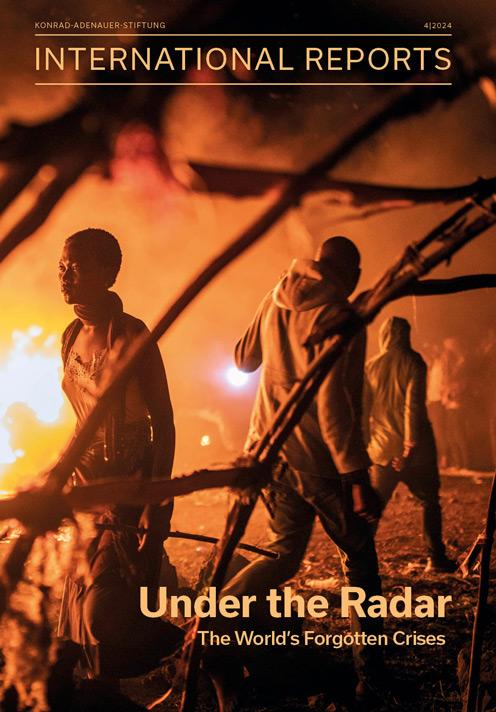Under the Radar. The World’s Forgotten Crises
Even crises that have flown under the radar for years can suddenly and unexpectedly escalate or take new turns, as the recent example of Syria has clearly shown. In this issue, we look into other crises and conflicts smouldering around the world, and ask what Germany’s and Europe’s priorities should be.
View table of contents






